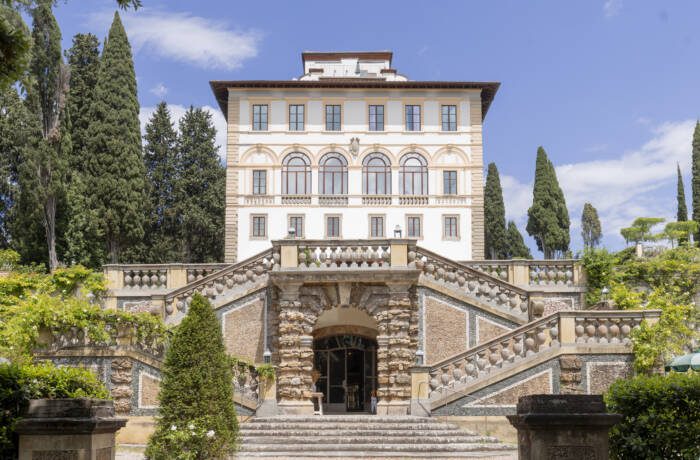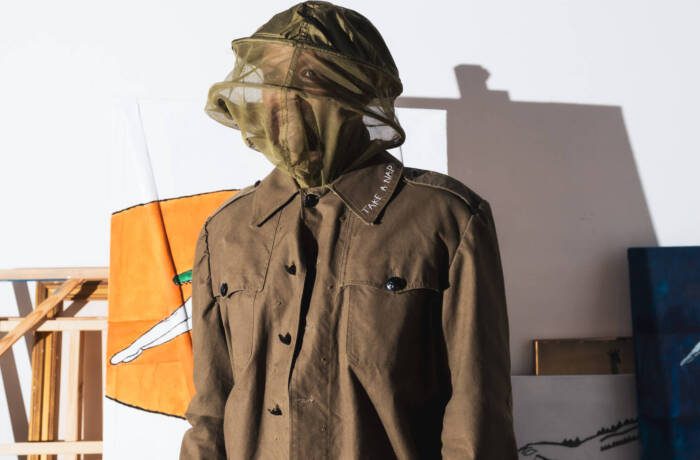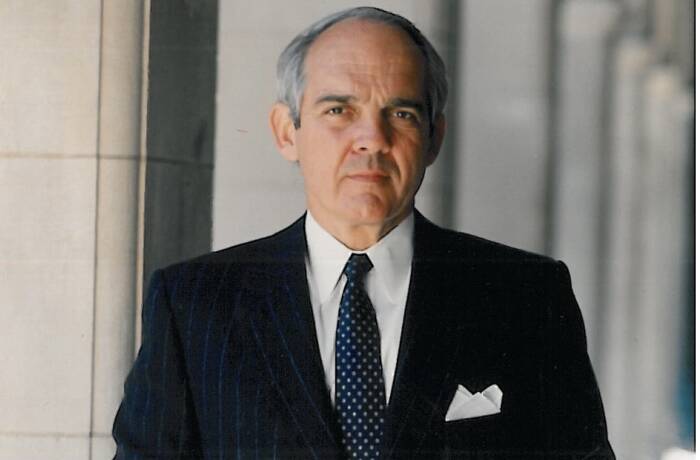
The Fattorie dei Dolfi estate in Tuscany uses traditional, sustainable practices in its winemaking.
Whether cooking or dining, some of our most memorable experiences are steeped in history and heritage. Abi Smith speaks to the craftspeople and producers who are placing time-honoured techniques at the heart of their work, with support from Gaggenau’s latest initiative
Conspicuous consumption is a thing of the past; today we all know that true luxury lies in experience and emotion. No longer blind to the damage that our disposable lifestyles are wreaking upon the planet, our gaze has turned to techniques and materials that have stood the test of time. But is this newfound focus on sustainability and durability built to last?
Follow LUX on Instagram: luxthemagazine
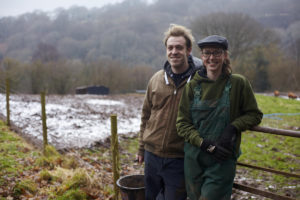
Kyle Holford and Lauren Smith
For Lauren Smith and Kyle Holford of Forest Coalpit Farm in Wales, who raise their large black cross pigs on pasture, it was the only approach. “From the beginning, we realised that our focus should be on quality and welfare so we kept that philosophy at the core of our decision- making,” Smith says. And though sustainability is rarely the quick and easy option, it pays dividends. “Quality takes time,” she adds. “It takes about twice as long for us to raise our pigs. We realised that we could produce pigs quicker, but there was less colour in the meat, and less of the much-sought-after marbling throughout.”
Forest Coalpit Farm pigs spend their days in the Brecon Beacons National Park woodland, a freedom that leads to “healthier, happier, cleaner pigs that get fresh air and exercise and haven’t been pumped full of antibiotics,” says Smith. There are perks for the environment, too: “Because our pigs roam and are rotated through large areas, there is a constant wheel of fertilising and regeneration, we don’t have vast slurry tanks and we don’t need to keep lights or air conditioning in the barns.”
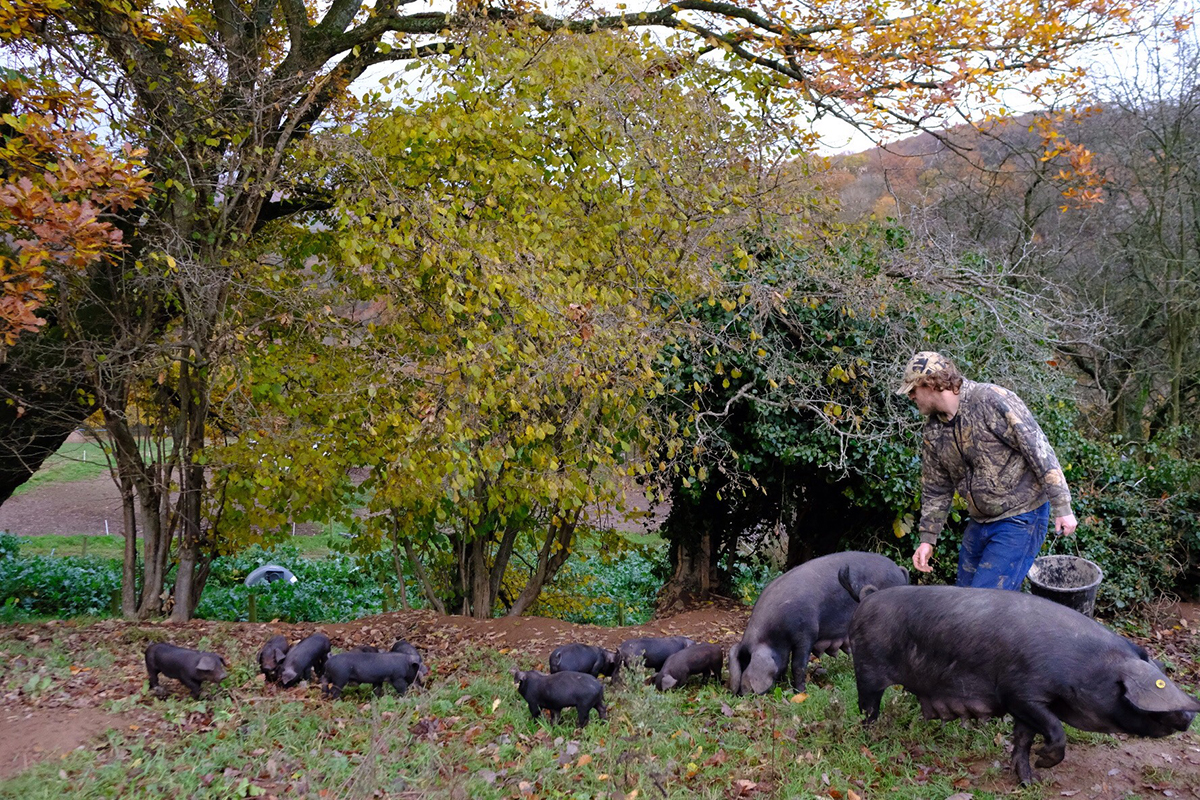
At Forest Coalpit Farm in Wales, Kyle Holford and Lauren Smith rear free-range large black cross pigs
Increasingly, consumers are turning to sustainable products for better quality. “I don’t follow the principle of sustainability for other people or because it’s popular in the market,” explains Giovanni Dolfi, who heads up the Fattorie dei Dolfi winery in Tuscany. “I do it for myself.” In collaboration with celebrated oenologist Dr Giacomo Tachis, Dolfi harnesses biodiversity and traditional processes to bring his historic Tuscan vineyards to life. “Sustainability is something I’ve always believed in and what I practise every day in my vineyards,” he continues, citing his devotion to both the environment and his customers’ wellbeing. “I am always the first person to drink my wine, and since I care for my own health, I believe that practising sustainability is a natural choice.”
Read more: Ornellaia’s auction of vintages with artwork by Shirin Neshat
This dedication to sustainability is what led German brand Gaggenau to begin working with Fattorie dei Dolfi, as part of its strategy to further promote its wine culture, and Giovanni Dolfi was invited to its International Sommelier Awards. As a maker of professional-grade luxury home appliances, Gaggenau has an instinctive respect for quality and craftsmanship: the ethos it has recently formalised through its Respected by Gaggenau programme. This mark of endorsement gives makers the recognition they deserve, while also offering the prospect of a bursary to support their work.
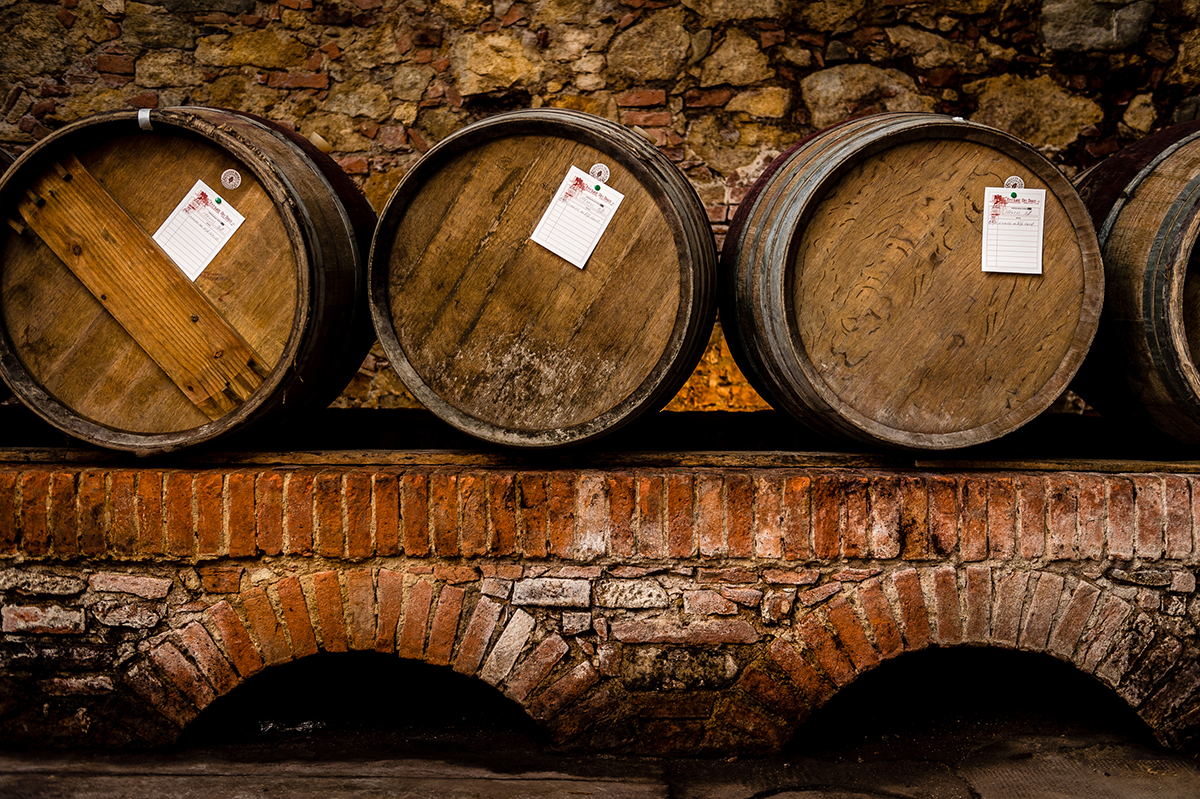
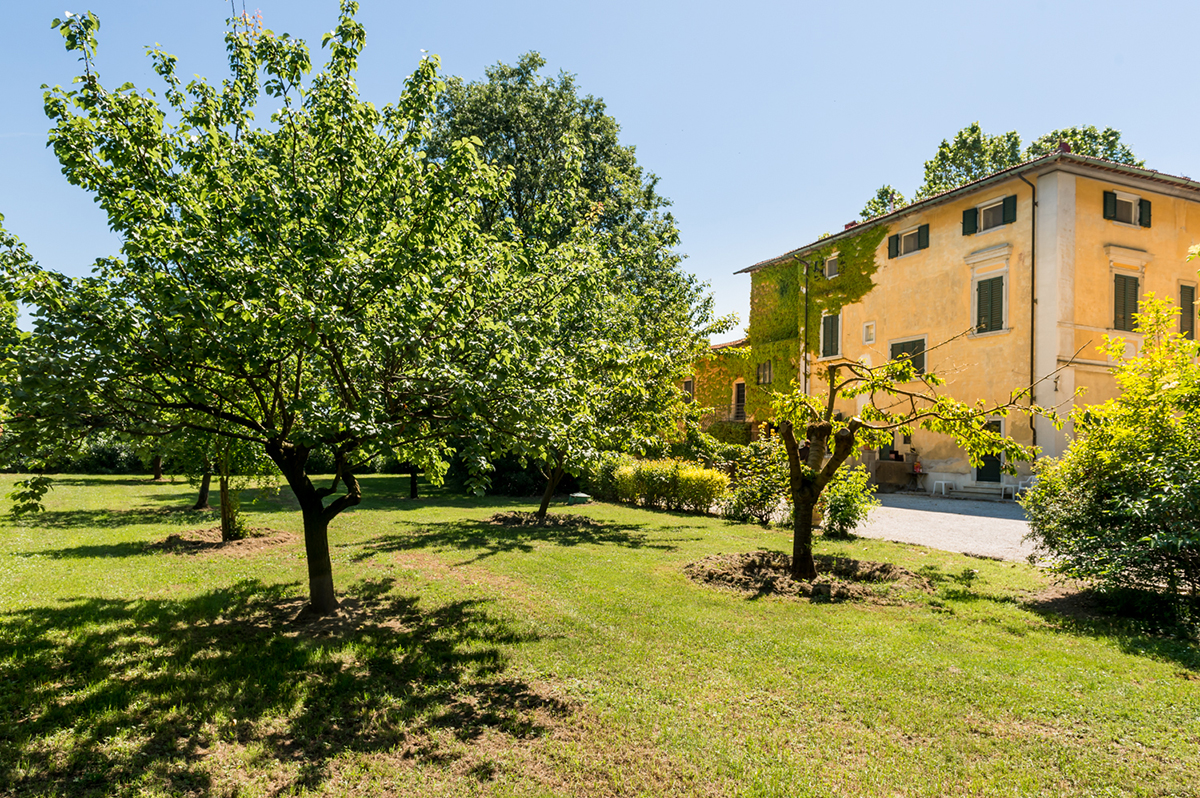
Here and above: the Fattorie dei Dolfi wine estate in Tuscany
It is a project that chimes with the current zeitgeist. Ever since the ‘slow food’ movement showed us the power of taking natural ingredients and enjoying them mindfully (something that discerning aesthetes have always known) the world has been longing for a more measured pace of life. Love it or hate it, the philosophy of tidiness guru Marie Kondo (who proposes keeping only those items that ‘spark joy’ within you) has put a popular modern spin on the wise words of William Morris more than a century before, namely: “Have nothing in your houses that you do not know to be useful or believe to be beautiful.”
It is a sublimation of beauty and utility that has led Nico Zendel – a designer at Gaggenau – to begin a side business forging bespoke knives with antique files. “Perfect function is a must and the perfect form supports the perfect function,” he says. “At Gaggenau we work with a lot of raw materials and try to highlight the handcrafted details on our products. That is the way I design my knives as well.” If you have an old file that has been handed down through your family, Zendel will use it to create a bespoke product for you. “An old file that has no use anymore is often discarded, but if you make a knife from it, you can use it every day, see the marks on it and perhaps think of your father or grandfather while you’re cooking. It has an emotional component that I’m very interested in,” he says. The result is a modern heirloom that says more about you than the most carefully curated Instagram feed ever could.
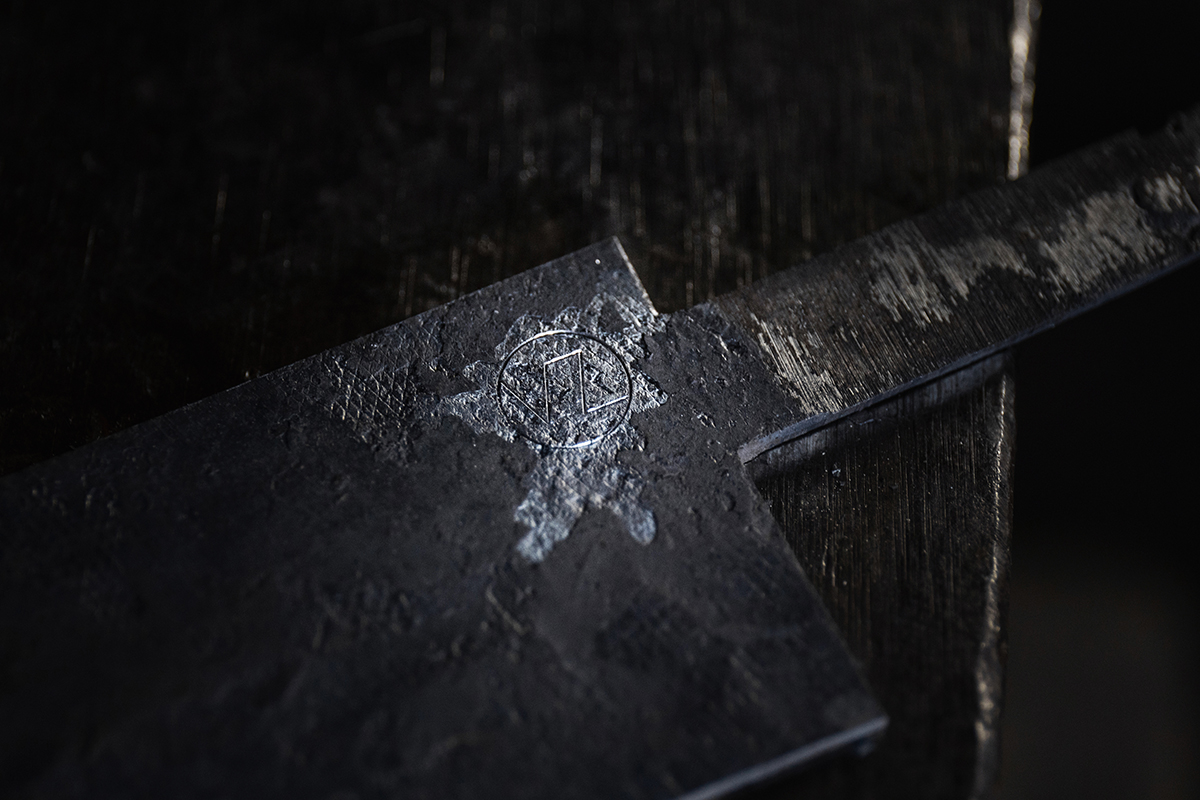
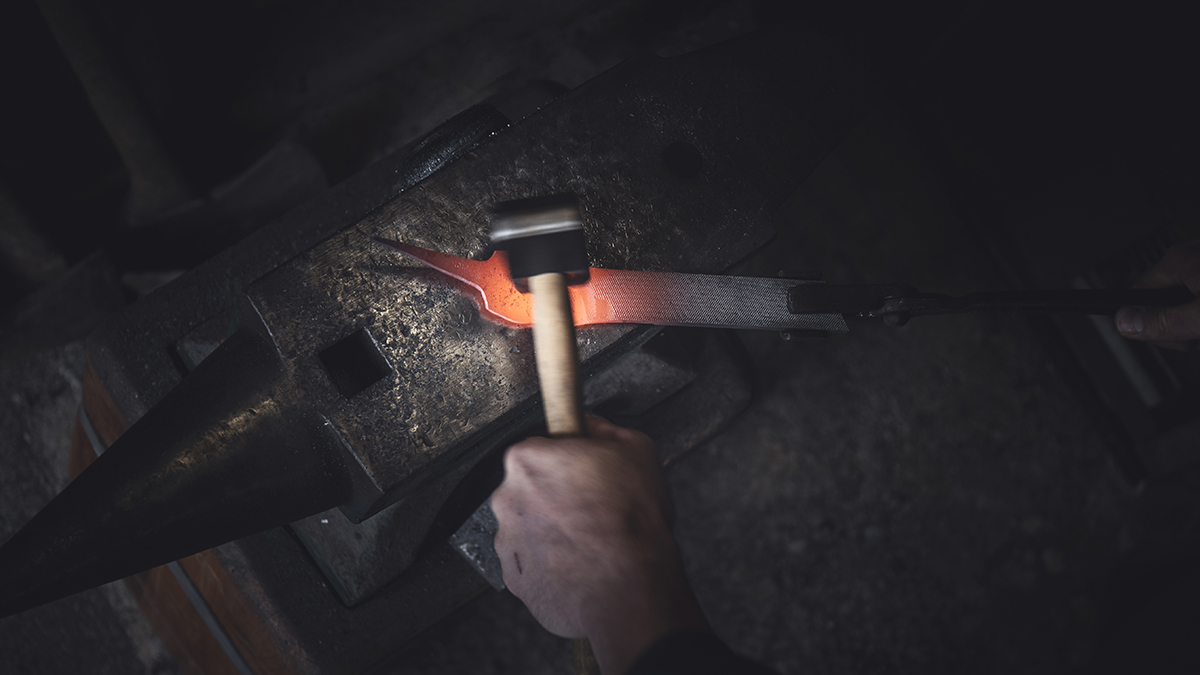
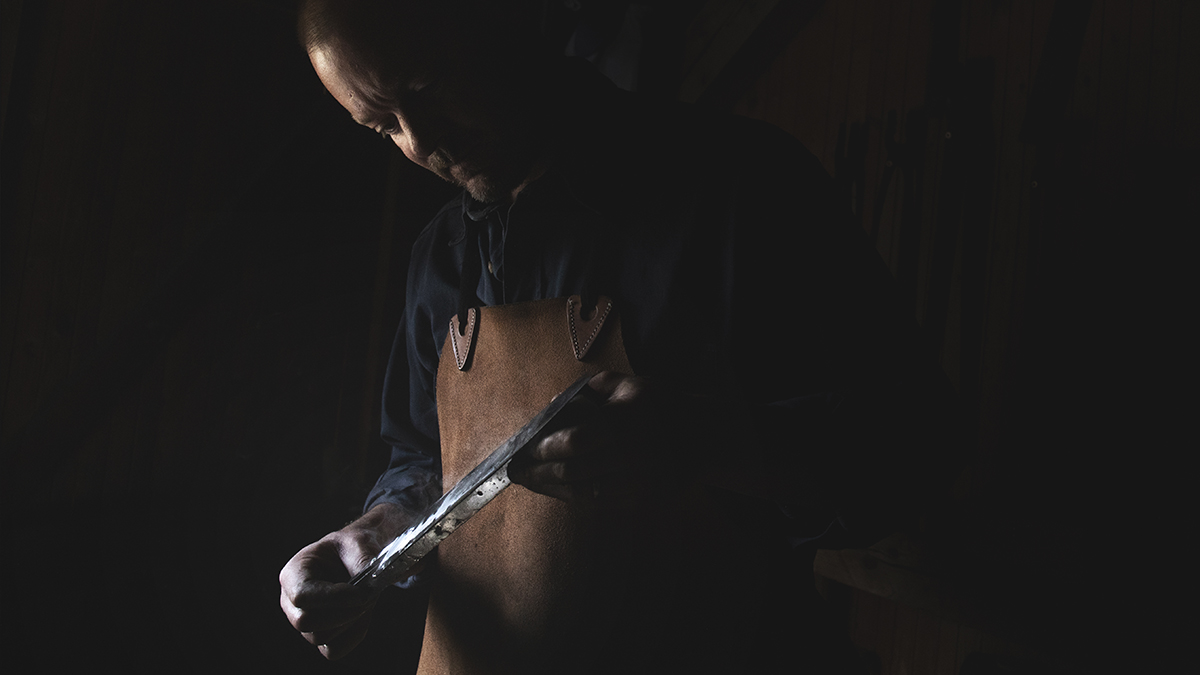
Designer Nico Zendel crafts bespoke knives from antique files which may otherwise have been discarded. Here, above and top: images by Alexander Stuhler
Zendel says that such objects last longer because people treat them with more respect: “For me, it’s important to preserve traditional techniques as they imbue the products with heart and emotion. It helps to get away from the throw-away culture; people are more linked to products that tell a story.” Dolfi’s wines are also overflowing with feeling: “Fattorie dei Dolfi is a project built by heart and hands,” he says. “By heart, we mean our passion, dedication and our love for the project. By hand, we mean the hard work we put in every day to pursue exceptional quality and unique results.”
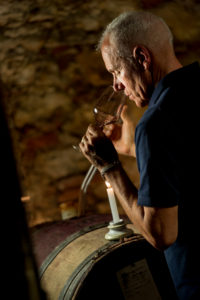
Fattorie dei Dolfi’s owner, Giovanni Dolfi
This hard work manifests itself in a natural approach to viniculture, where modern shortcuts are eschewed for gentler methods that work in harmony with the land. “My vineyards are surrounded by woodlands, where you’ll find bees, ladybugs, spiders, hares, birds and more,” says Dolfi. “The benefits of this are obvious. For example, the bees bring natural pollination and help to control the numbers of harmful insects. This ensures the health of my vineyards and the exceptional quality that I pursue.”
Read more: In conversation with renowned Belgian painter Luc Tuymans
But the path of an artisanal producer is not always easy. In Dolfi’s case, during late summer, wild boars have been known to gorge on the grapes. A commitment to what we might call ‘slow luxury’ – much like slow food – means a rejection of the ‘pile it high, sell it cheap’ philosophy that has made other entrepreneurs rich. As Smith from Coalpit Farm points out, “rearing pigs outdoors requires a lot more labour than an indoor system with automated feeding. We have to move the pigs from pen to pen, and it’s harder to get their diet just right when they burn a lot more energy running outside. And there’s the weather, too.” But Smith, who knows every sow by name, wouldn’t have it any other way.
Remembering how his grandfather would walk him round their ancestral vineyards, Dolfi says: “As we relentlessly strive for efficiency, traditional ways fall out of favour and the concept of exceptional quality can be lost.” To survive, these crafts must be supported and celebrated, and that’s where Respected by Gaggenau comes in. With the right platform and access to a global support network, their skills will endure for generations to come.
Respected by Gaggenau
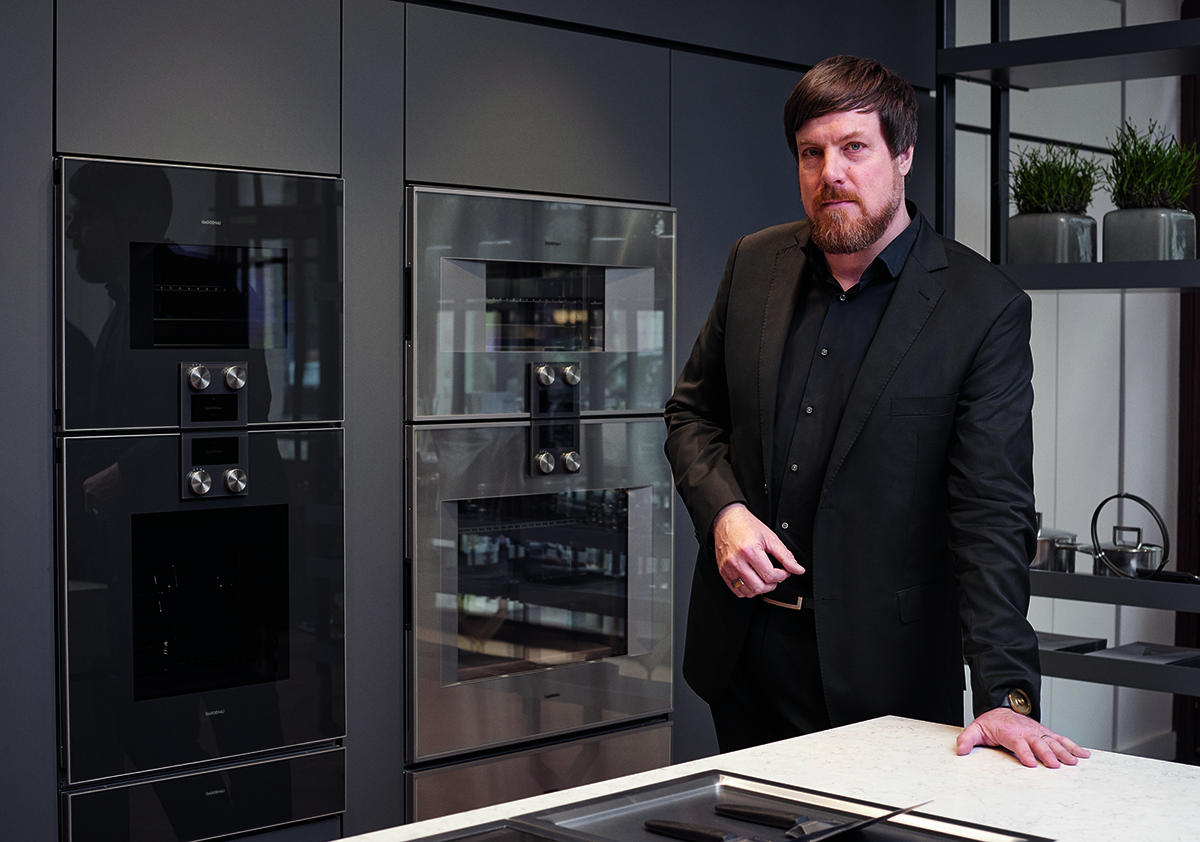
Gaggenau’s head of design, Sven Baacke
Sven Baacke, head of design at Gaggenau, shares his philosophy on supporting emerging artisanal creators
LUX: What inspired Respected by Gaggenau and why is it important to preserve traditional artisanal skills?
Sven Baacke: The initial concept of the Respected by Gaggenau initiative was inspired by our appreciation for people who are using traditional techniques to create a different and exceptional product. Gaggenau has always celebrated exceptional craftsmanship and we wanted to formalise our support for these artisans and craftsmen through this initiative.
LUX: How can advanced technology and traditional craftsmanship work hand in hand?
Sven Baacke: A unique example of how Gaggenau merges traditional production methods with advanced technology is the way in which we construct our EB 333 ovens. Since its introduction in 1986, this 90-cm wide oven, designed for private kitchens, is crafted almost entirely by hand using select materials. Yet the company also embraces the latest technology: we created a clean room at the epicentre of our Lipsheim factory to hand-build our signature TFT touch display, which features
on the EB 333. This is a clear case of how technology and artisanal craftsmanship work together in harmony.
LUX: Is craftsmanship still valued by consumers in a modern market?
Sven Baacke: Craftsmanship, now more than ever, is valued highly by luxury consumers. Our customers expect exceptional craftsmanship from Gaggenau appliances. At every stage of production, we examine our work to seek out imperfections. The quality control that we use when creating our appliances ensures that we produce an extraordinary product, every time.
LUX: How will the Respected by Gaggenau artisans benefit from your global network?
Sven Baacke: Gaggenau takes part in a range of events globally; for example, we are a proud partner of The World Restaurant Awards, which was launched in Paris at the beginning of this year. We introduced Respected by Gaggenau at the awards, with an immersive experience inspired by a traditional marketplace. It featured products curated by us and the Collège Culinaire de France, and guests could explore the collection while learning more about who made each item. We also host the Gaggenau International Sommelier Awards – a global search for the world’s best young sommelier talent – so we’ll encourage their involvement with this event too. It’s all part of our initiative to celebrate these remarkable artisans and their stories.
Find out more: gaggenau.com/gb
To discover Nico Zendel’s range of knives visit: vauzett.com.
This article was originally published in the Autumn 19 Issue.

